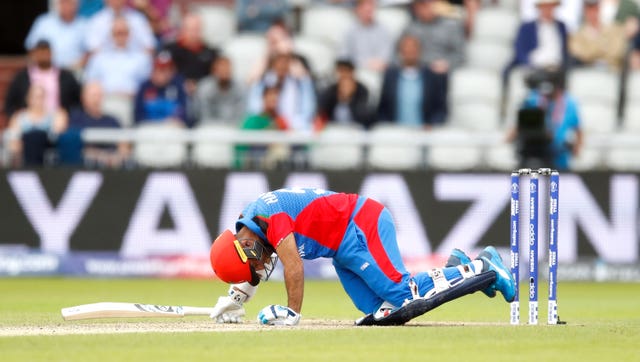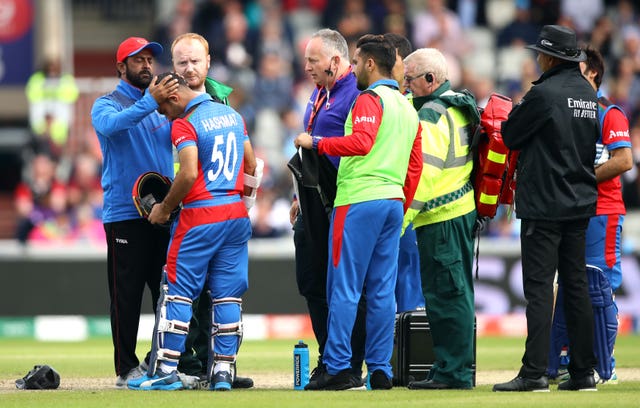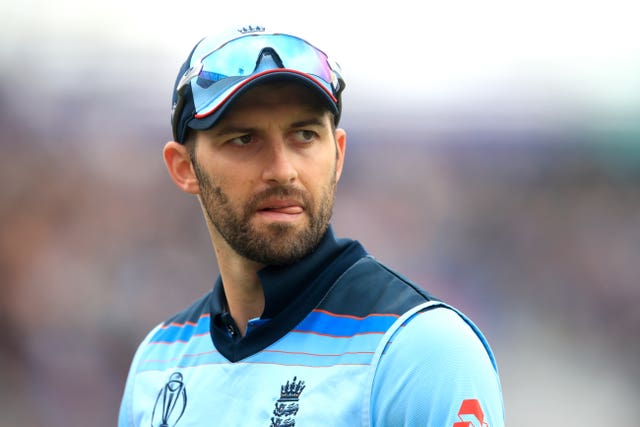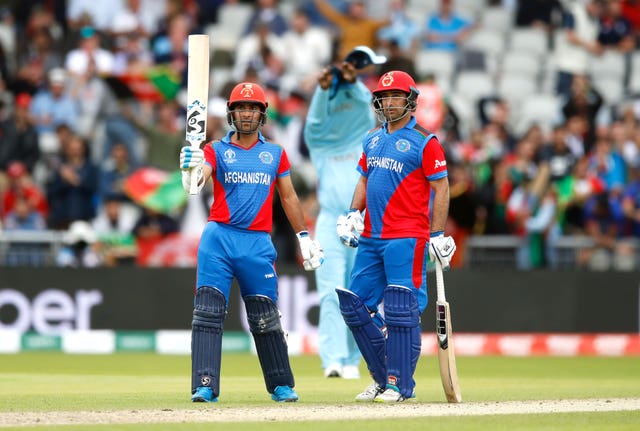Brain injury association Headway has raised fresh concerns about cricket's response to head trauma following Afghanistan batsman Hashmatullah Shahidi's decision to bat on after being hit on the helmet against England.
Hashmatullah turned his back on a 92mph bouncer from Mark Wood during Tuesday's game at Old Trafford and was immediately felled after impact.
The 24-year-old revealed medical staff who assessed him in the middle advised him to leave the field but he declined, batting on for an extended period to top score for his side with 76.

Peter McCabe, chief executive of Headway, finds it troubling that he was allowed to do so and suggested the decision should not lie with the individual.
He told Press Association Sport: "These comments are very worrying and again show a distinct lack of understanding about the dangers of concussion, as well as troubling insight into the lack of authority some team doctors seem to have.
"Players need to take the advice of doctors and adhere to the protocols, rather than follow a misguided sense of duty to their team-mates which could result in a serious, possibly lifelong, injury."
McCabe added that it would impossible to complete a conclusive assessment in the middle of the game and advised extreme caution to be taken.
"The decision must be taken out of players' hands. If the doctor advises the player to leave the field then they should promptly do so, there should be no debate whatsoever," he said.
"We know that the signs and symptoms of concussion can be delayed in their presentation, which is why it is so important to take an 'if in doubt, sit it out' approach to head injuries."
Hashmatullah said after the match he did not want to worry his mother, who was watching the game on television, and did not want to let his side down.

As well as being potentially risky to his own health, that decision placed Wood in an invidious position too.
In a cricketing context the most obvious tactical ploy was to test Hashmatullah's technique – and nerve – with more short-pitched bowling. Wood did just that, despite admitting initial anxiety over the batsman's condition, with Hashmatullah gamely passing the examination.
"I was concerned when it first hit him. It was a bit of a bad blow," said Wood.

"You have to let the medical staff do their thing. Then it's out of my hands. I checked he was all right himself, I said, 'Are you okay?' and then it was back into game mode.
"Morgy (England captain Eoin Morgan) wanted me to fire another few down, so if that's what the captain wants you listen to orders. Once you know he's all right it's game time again."
The International Cricket Council explained that any decision to remove an individual was a matter for the team, not the governing body.

A spokesperson told Press Association Sport: "We do not have the final say over a player as it is a team responsibility to make that decision.
"Every team has a nominated team medical representative who will make all decisions around all medical issues relating to players (including concussion). The ICC also provides an independent match day doctor to provide additional support should teams require and request this."
The organisation provided every participating team with a pre-tournament concussion briefing as part of a medical workshop, and has issued detailed concussion guidelines.
ga('create', 'UA-72310761-1', 'auto', {'name': 'pacontentapi'});
ga('pacontentapi.set', 'referrer', location.origin);
ga('pacontentapi.set', 'dimension1', 'By Rory Dollard, Press Association Cricket Correspondent');
ga('pacontentapi.set', 'dimension2', '9c7a4336-3576-4712-ad9c-dfb77ec02f89');
ga('pacontentapi.set', 'dimension3', 'paservice:sport,paservice:sport:uk,paservice:sport:world');
ga('pacontentapi.set', 'dimension6', 'story');
ga('pacontentapi.set', 'dimension7', 'composite');
ga('pacontentapi.set', 'dimension8', null);
ga('pacontentapi.set', 'dimension9', 'sport:cricket');
ga('pacontentapi.send', 'pageview', { 'location': location.href, 'page': (location.pathname + location.search + location.hash), 'title': 'Very worrying \u2013 Charity condemns decision to allow Hashmatullah to bat on'});







